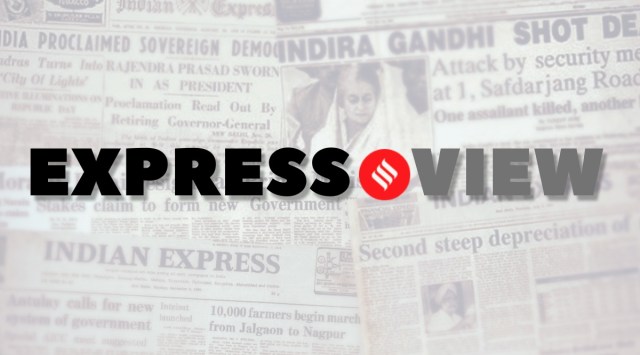
The Centre’s decision to call an all-party meeting on Manipur, though belated, is a step in the right direction. So is Congress leader Sonia Gandhi’s sober appeal for peace: She avoided blame-laying and underlined the “human tragedy” that has left a “deep wound” for the nation. The attempts so far to mediate peace between the Meiteis of the Imphal Valley and the Kuki-Zomi tribes who live in the hills that ring the Valley, have not yielded results. The continuing violence and the deepening ethnic schisms call for all parties to rise above partisan interests and work together to rebuild trust among the warring communities.
At least 110 people have died and thousands displaced from their homes in the ethnic violence since early May. Central forces have been battling both mobs and snipers, who have taken control of the streets. Union Home Minister Amit Shah had visited the state for four days in May and met a cross-section of the population. He spoke about a 15-day window for political groups to give up arms and give a chance to efforts to restore peace. But the initiatives that Shah announced — for instance, constitution of a peace committee — have failed to take off in the polarised environment. The deep suspicion among communities, entrenched further by violence and rampant rumours, has meant that any peace negotiation may have to be mediated by actors from outside the state. The BJP-led state government is perceived as partisan and the party’s legislative unit is divided on ethnic lines. Mobs on the rampage have targeted ruling party leaders for refusing to side with them openly — the home of Union minister R K Ranjan Singh and the official quarters of Kangpokpi MLA and state minister Nemcha Kipgen were set on fire. State institutions such as the police and bureaucracy are seen as compromised. Chief Minister Biren Singh is now a controversial and discredited figure, having failed to win over the confidence of the whole state and lead the administration in a way that is fair and seen to be so too. This, perhaps, is the reason why the state could not build on the hope that Shah’s visit had generated.
It is ironic that Delhi is today seen as a neutral arbiter in Manipur, which has hosted a large number of separatist groups. The all-party meeting could tap this emergent goodwill and persuade the estranged ethnic groups to sit across the talks table. The message must go out to Manipur that the country is concerned about the loss of lives and destruction of homes. As Sonia Gandhi said, “It is heartbreaking to witness our brothers and sisters who have coexisted peacefully turn against each other. The history of Manipur stands testament to her ability to embrace people of all ethnicities, religions and backgrounds, and the myriad possibilities of a diverse society.” Manipur needs to retrieve lost ground and rebuild peace. The all-party meet will, hopefully, provide a roadmap.